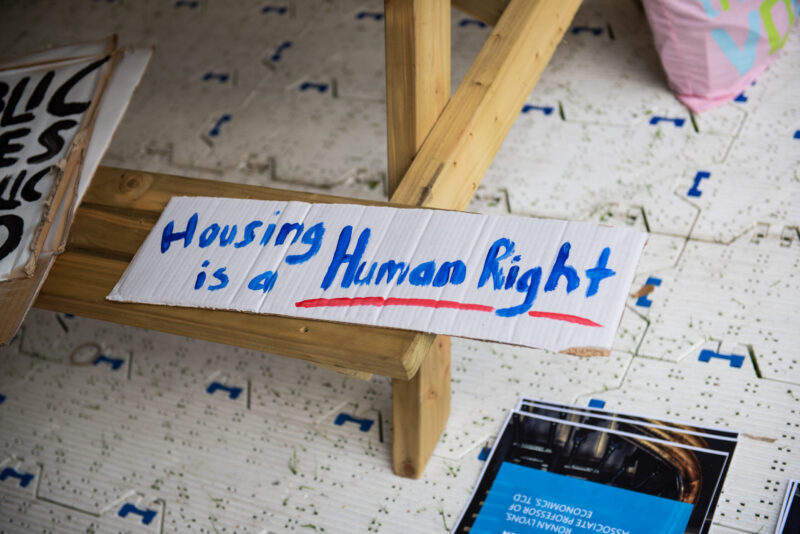The Union of Students in Ireland (USI) has published its submission to the Government’s Review of the Private Residential Sector, arguing that issues relating to the availability and affordability of housing “seriously and negatively affect the student experience in Ireland”.
In the submission, the USI criticised the lack of protective structures in place for students availing of Rent-a-Room schemes, or “digs”, as well as the ineffectiveness of the current National Student Accomodation Strategy. In addition, the submission called for the eradication of luxury student accommodation and for a referendum to establish a constitutional right to housing, naming the latter as “an area of critical concern”.
Zaid Al-Barghouthi, USI’s Vice President for Campaigns and former Trinity College Dublin Students’ Union (TCDSU) International Officer, said of the submission: “The voice of students must be heard in this review, as the rental sector and students are inextricably linked. The student accommodation sector is in crisis, but there are solutions that the Government can take on board to address this crisis.”
The USI claimed that the current absence of a constitutional right to housing reinforces an “asymmetric balance of power in our society between landlords and renters’, a sentiment echoed by TCDSU in its own submission to the review. TCDSU stated: “In a market economy, the interest of landlords is diametrically opposed to that of the tenant, and is diametrically opposed to the concept of housing as a human right.”
The TCDSU submission included student testimonials to highlight the ongoing crisis. One anonymous student found that their “mental and physical health were being neglected in order to maintain living arrangements and pay fees”. Another reported being “priced out of accommodation” and “forced to travel three hours a day as a student with a physical disability”. The submission referenced the results of a recent Students4Change survey, which reported that 93% of Trinity students found on-campus housing to be unaffordable.
The USI submission further criticised the instability created through renting rather than owning one’s home. It suggested that “viewing renting as a lifelong option” serves to ensure “that the current and upcoming generations live in a state of perpetual insecurity about the satisfaction of their most fundamental needs”.
Moreover, the submission condemned the classification of certain student renters as “licensees” rather than tenants, claiming that the position of a long-term licensee is “precarious and unbalanced” compared to that of a tenant. The USI argued the increased likelihood of a licensee facing a non-fault eviction, receiving an unannounced inspection and resulting fine, or being subject to a rent increase outside the limits imposed within Rent Pressure Zones. The union called for the restriction of licensee classifications to short-term rentals such as hotels.
The union also called for a clear definition of affordability, pointing out that funding is granted to third-level institutions for the provision of accommodation on the condition that it is affordable, yet there is no “clarity relating to what the term of affordability entails”, let alone an “enforcement mechanism”.
The lack of an enforced affordability framework, the union continued, allows for an influx of luxury student accommodation, which “most students could never dream of affording”. The submission recommended eradicating such establishments through the introduction of a price cap on properties labelled as student accommodation, as well as implementing rent freezes until the housing market stabilises through an increase in available properties.
Regarding quality control and tenant protection, the submission recommended the enforcement of minimum room sizes and standards set for rent-a-room schemes, or digs. It also called upon the state to take a more proactive approach by providing clear and accessible information to “keep both landlords and tenants informed about any changes to housing standards or enforcement procedures through regular updates via email, newsletters, or social media”.
The USI submission to the review follows that of TCDSU, in which the latter union declared support for “a restoration of the eviction ban, severe restrictions on no-fault evictions, seizing of vacant and derelict properties, a ban on AirBNBs in Dublin, and People Before Profit’s Rent Control Bill alongside Sinn Féin’s legislation to ban sex for rent”.







